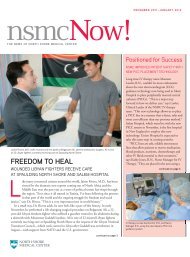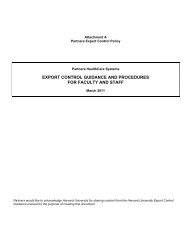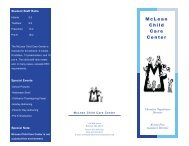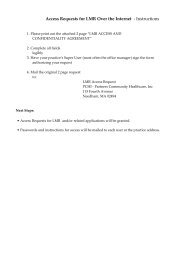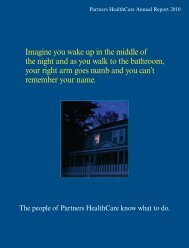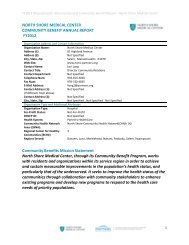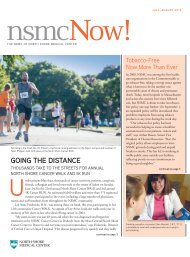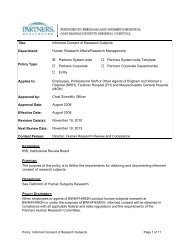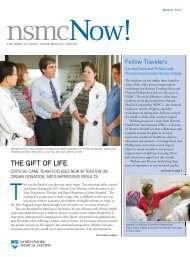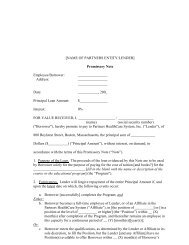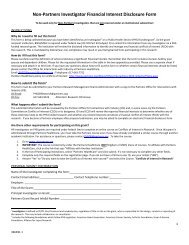Exception from Informed Consent Requirements for Emergency
Exception from Informed Consent Requirements for Emergency
Exception from Informed Consent Requirements for Emergency
Create successful ePaper yourself
Turn your PDF publications into a flip-book with our unique Google optimized e-Paper software.
The PHRC must make and document the following findings and determinations:1. Conducting the research is justified because: The human subjects are in a life threatening situation; Available treatments are unproven or unsatisfactory; and The collection of valid scientific evidence, which may include evidence obtainedthrough randomized placebo-controlled investigations, is necessary to determine thesafety and effectiveness of particular interventions.2. Waiving in<strong>for</strong>med consent is justified because: The subjects will not be able to give in<strong>for</strong>med consent as a result of their medicalcondition; The intervention under investigation must be administered be<strong>for</strong>e consent <strong>from</strong> thesubjects’ legally authorized representative is feasible; and There is no way to identify prospectively the individuals likely to become eligible <strong>for</strong>participation in the clinical investigation.3. The risks are reasonable in relation to the anticipated benefits because: Subjects are facing a life-threatening situation that necessitates intervention; Approval animal and other preclinical studies have been conducted, and thein<strong>for</strong>mation derived <strong>from</strong> those studies and related evidence support the potential <strong>for</strong>the intervention to provide a direct benefit to the individual subjects; and Risks associated with the investigation are reasonable in relation to what is knownabout the medical condition of the potential class of subjects, the risks and benefitsof standard therapy, if any, and what is known about the risks and benefits of theproposed intervention or activity.4. The clinical investigation could not practicably be carried out without the waiver.5. The investigational plan defines the length of the potential therapeutic window based onscientific evidence, and the investigator has committed to attempting to contact a legallyauthorized representative contacted <strong>for</strong> consent within the window rather than proceedingwithout consent. The investigator will summarize ef<strong>for</strong>ts made to contact legally authorizedrepresentatives and make this in<strong>for</strong>mation available to the IRB at the time of continuingreview.6. The IRB has reviewed and approved in<strong>for</strong>med consent procedures and an in<strong>for</strong>med consentdocument consistent with 21 CFR 50.25 and 45 CFR 46.116. These procedures and thein<strong>for</strong>med consent document are to be used with subjects or their legally authorizedrepresentatives in situations where use of such procedures and documents is feasible. TheIRB has reviewed and approved procedures and in<strong>for</strong>mation to be used when providing anopportunity <strong>for</strong> a family member to object to a subject’s participation in the clinicalinvestigation consistent.7. The following additional protections of the rights and welfare of subjects will be provided: Consultation (including, where appropriate, consultation carried out by the IRB) withrepresentatives of the communities in which the clinical investigation will beconducted and <strong>for</strong>m which the subjects will be drawn;Policy: <strong>Exception</strong> <strong>from</strong> <strong>In<strong>for</strong>med</strong> <strong>Consent</strong> Requirement <strong>for</strong> <strong>Emergency</strong> Research Page 3 of 5




